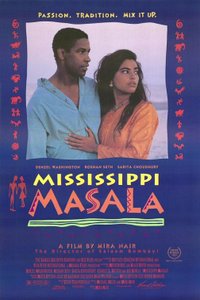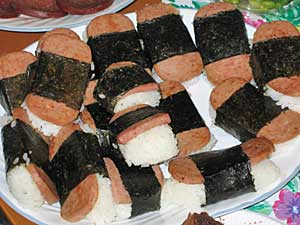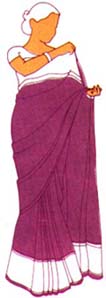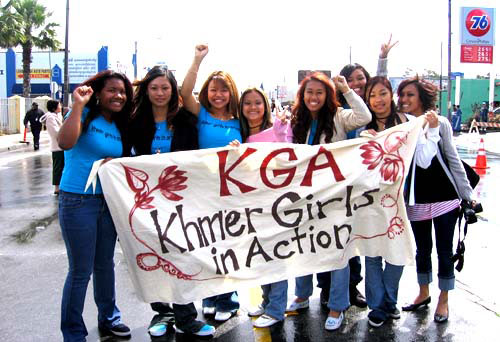Introduction
The differences among people largely stems from their personalities which are mainly influenced by their cultural orientation. Cultural orientation affects interactions and determines how people view each other. The ideology of equal and unlimited opportunity is one that has been held as a way of becoming an American. The fact that America has a rich history regarding the background of its people determines this ideology and has found discussion in major research and issues of policy making and governance. This paper is a critical evaluation of the ideology of equal and unlimited opportunity as presented in the article by Karen Polster and other class learning artworks.
Background information
The article under consideration by Karen Polster is titled “Major Themes and Influences of the Poems at Angel Island.” In her article, Polster (2000) summarizes the influences and themes of the Angel Island poems asserting that they are not only significant historically, but that they also form the basis for American literature and permeate to provide social, political, economical and cultural explanations in America. Polster argues that the Angel Island poetry provides an understanding of contemporary themes of race, alienation, labor and immigration in America.
She further explores labor and economic conditions in California at the century’s turn, the American ideologies of the Frontier and opportunity, the influence of immigration literature in attempts of refiguring the self, reflections of the themes and styles of classical Chinese poetry as well as the Angel Island themes as found in Chinese American literature. In the article, Polster (2000) points out that the Angel Island poems “both question and uphold the traditional American ideologies of equal and unlimited opportunity” (p. 1). This assertion forms the basis of critical evaluation of the article together with other artworks.
Critical Evaluation of the Article
Economic opportunity is the reason why immigrants came and continue to come to America as stipulated in the ideology of Frontier of economic and social mobility (Polster, 2000). America has been described as a land with no boundaries meaning that immigrants are always welcome and accorded equal opportunities as those given to the citizens of the nation. These form the ideologies of America (Polster, 2000). However, this ideology has received support and criticisms from all manner of fields and Polster’s article forms part of this as described and analyzed from the Angel Island poems. This implies that the poems both acknowledge the fact that the ideologies were present and applied, yet on the other hand provide instances that question the ideologies in terms of whether they were really able to meet the objectives that they claimed to uphold and maintain.
The article stipulates that after America extended its territory to California and other Mexican parts, the Chinese immigrants formed about 25% of the total workforce in California (Polster, 2000). This shows that Polster upholds the ideology of equal and limited opportunity. This is supported by the fact that the immigrants of China actually came to America and were rightfully accorded jobs to the extent of forming a quarter of the total workforce. The ideology is further supported by the fact that the poems reveal that the immigrants viewed America as a source of opportunity and equality. They had the confidence of leaving their own country and had the assurance of earning a living not just blindly but because to some extent these ideologies had been held.
According to the article, the immigrants entered America through San Francisco and not through the Angel Island. This shows that they really had the chance and opportunity in the areas they traveled. Further, the levels of infrastructure by the immigrant nations such as China were developed with the building of connecting rails to America. This was to ensure that the immigrants had the opportunity of getting to America. They had the audacity to build infrastructure to America with the assurance that they would get equal and unlimited opportunities as depicted by the ideologies.
Additionally, the Angel Island Poetry reveals an influence of Americanization. This is shown by the fact that they reveal the themes of equality and knowledge of the American dream. This goes further to show that this was influenced by the places they traveled through America. For example, one poem asserts that “the Western styled buildings are lofty; but I have not the luck to live in them. How was anyone to know that my dwelling place would be a prison?” (Polster, 2000, p. 1). This shows that they had experienced a taste of justice and equal treatment such that they were able to acknowledge when unfair treatment was subjected to them through imprisonment.
Although Polster seems to uphold the ideologies of equality and unlimited opportunity, she does not fail to question the ideology. This is revealed through the actual imprisonment of the immigrants and the fact that they are termed as foreigners. This is shown from the poem through the claim “Who was to know that I would be imprisoned at Devil’s Pass? How was anyone to know that my dwelling place would be a prison?” (Polster, 2000, p. 1). Further, the Chinese were referred to as illegal and social aliens who were ineligible for citizenship thus contradicting the real essence and foundations of the ideologies. The poetry states that the American laws were unjust especially to immigrants: “America has power, but not justice. In prison, we were victimized as if we were guilty. Given no opportunity to explain, it was really brutal,” (Polster, 2000, p. 1). This assertion means that the immigrants felt that the ideologies were not implemented as expected thus questioning their application.
Polster (2000) provides the fact that the poems of Angel Island had no specified author since the authors hid their identity. This shows that the immigrants in prison were aware of some negative consequences that would befall them incase they were discovered to be writing such claims. This fear explains the fact that there was limited opportunity for the immigrants to freely express themselves through airing out their views. This contradicts the ideology of unlimited opportunity.
Polster (2000) further shows that the poems reveal the feelings of hatred and resentment of America for those imprisoned. For example, one poem claims that “I will not speak of love when I level the immigration station! An advantageous position for revenge will surely come one day. I will certainly behead the barbarians and spare not a single blade of grass,” (Polster, 2000, p. 1). These feelings of disappointment raise questions as to whether the ideologies of equal and unlimited opportunity were applied. The poems further reveal that the prisoners saw themselves living in another world. In fact they claim that “Even while they are tyrannical, they still claim to be humanitarian. I should regret my taking the risks of coming in the first place,” (Polster, 2000, p. 1). This shows the regret, anxieties, alienation and displacement they went through further questioning the American ideologies.
The Use of Artwork to Uphold and Question Equality and Unlimited Opportunity
The ideologies of equal and unlimited opportunity has been both upheld and questioned by the concepts of assimilation, pluralism and melting point (Diller, 2010). Assimilation for instance suggests that one has to shed off their own culture and values and adapt to the behaviors and values of the dominant group. This concept upholds the ideology of equal and unlimited opportunity by suggesting that the dominant group takes the form of America as a whole. This means that people have to fit in the values of the dominant group as a way of ensuring the minor groups adapt to the ways of the dominant group. This is a way of coexistence and enhancement of equality since it is easier for the minority groups to fit in the majority. On the other hand, this concept shows that the minority group is denied the opportunity to have its own values and behaviors hence contradicting it.
The concept of pluralism suggests that individuals maintain their own individual cultures. This concept on the one hand upholds the ideology of equality and unlimited opportunity. This is due to the fact that individuals are accorded unlimited opportunity to maintain their own values and behaviors. However, this concept questions the ideology since the aspect of equality where there are diverse cultures is questionable.
The concept of melting pot suggests that individuals surrender their own values, behaviors and cultures and adapt a new different culture. This concept upholds the ideology of equality and unlimited opportunity to the extent that it advocates for equality through a unified new culture and ensures individual are accorded unlimited opportunity owing to the fact that the culture is unified.
Contrary to the foundations of the ideology of equality and unlimited opportunity, melting point raises questions on the ideology since to some extent; it limits the opportunities of the individuals holding onto their own values, behaviors and cultures. Not only is the ideology of equal and unlimited opportunity upheld and questioned by the concepts of knowledge, it is also revealed in works of art such as films, visual art, music, humor and literature.

Films
The film Mississippi Masala was directed by Nair Mira and released in 1992 in the United States. The film depicts a romantic story of an Asian Indian family that relocates to Mississippi from Uganda (Mississippi Masala, 1992). On the one hand, the film upholds the ideologies of equality and unlimited opportunity since the family was able to relocate to Mississippi and start a new life. On the other hand, the film depicts racism as an aspect the ideologies are against.
The film version of the program “America’s best dance crew” by MTV shows a performance of Kaba modern dance group composed of Filipino American students whose membership is limited on the basis of Asian ethnicity (MTV, 2008). This film upholds the ideologies of equal and unlimited opportunity to the extent that this group is engaged in an American competition and allowed to be based on their own cultural values. However, the film questions the ideologies due to the limited membership based on ethnicity and the fact that the group is one of an association that is not pleased with the ideologies.
Visual Art


The visual art in figure 1 on one hand may represent the concept of melting pot or pluralism and may also provide a cultural distinction of the food. The other visual art in figure 2 represents a woman wearing a sari. This would uphold the ideologies to the extent that individuals have the opportunity to express their culture while on the other hand it may represent inequality in terms of individuals choosing their own ways of doing things thus challenging the concept of unification that the ideologies advocate for. Further, it can also be interpreted as displeasure for the American way of life and thus a way of expressing displeasure with the ideologies held.
Music
Music as an art represents the ideologies it holds. The music that is performed at the Pilipino cultural night represents the Pilipino culture (Gonzalves, 2009). This music upholds the ideology to the extent that the students of such ethnic background are allowed to hold an event that defines their culture. However, the performances can be interpreted to mean that the students are not comfortable with the American culture and hence prefer to show their own ethnic culture. The music by pianist and composer Ellington Duke was excluded in major studies. This can be interpreted as questioning the ideology of unlimited opportunity and equality since the western composers were included while this serves as a denial of an opportunity. However, on the other hand, this would mean trying to achieve equality through assimilation.
Humor


In figure 1, humor is presented through the wording “khmer” which means not to trust the Americanized pronunciation as seen in movies or TV, which sounds a little bit like “come ear.” The humor shows the upholding of the ideology of equality and unlimited opportunity where girls have the opportunity of contradicting the stereotypes held by Asian females by criticizing sexism and being able to use frank language (Odo, 2002). However, the humor can be interpreted on the basis of seeking equality, democratic rights and diversity. Through such campaigns, the Cambodians are not only fighting to make their present situation better but also for their future generations (Lynch, Cecilia & Sohan, 1992).
In this situation, this raises questions on the ideologies. Figure 2 of the seller raises humor from the caption stuck on the shop. This can be interpreted on the basis of upholding the ideology of equality and unlimited opportunity to the extent that this calls for unitary equality in a similar language for the clients and the fact that Joseph has the opportunity to make a living out of his business despite his Italian background. However, it can also be interpreted in terms of limitation of service since the use of English language limits other language speakers.
Literature
The book “Clothes” by Divakaruni bases the characters on the post-1965 immigration. The characters maintain their culture such as the belief that a married woman belongs to her husband and her in-laws (Divakaruni, 1995). The arranged marriage of Sumita enables her to achieve freedom, self expression, and treatment with equality and independence. At the end, she decides to stay in America. This literature upholds the ideologies of equality and unlimited opportunity as expressed through Sumita. However, it questions the ideologies to the extent that the freedom of the characters is relative and based on resources one has. This means that the unlimited opportunities are questionable even as the couple experiences victimization and pays highly to achieve independence (Fredrick, Vandom & John, 2009).
The article by Gonzalves (2009) is based on Pilipino culture nights (PCN). He portrays his youth love for music by Prince who is seen to have the Filipino ancestry. He further presents the eras of emergency of PCNs and the identification of the hostile years of 1980 exerted on the minority. This interprets the aspects of ethnicity and reveals the hostile treatment to minorities thus raising questions about the ideologies of equality and unlimited opportunity. Gonzalves however chooses a “reverse telos” ending of his article by encouraging the creation of a new unified American culture just as suggested by the concept of melting pot. This choice of ending upholds ideologies of equality and unlimited opportunity through unification of culture.
Conclusion
The aspects of upholding and questioning equality and unlimited opportunities permeate from historical studies and art to the contemporary application. This paper has critically evaluated and analyzed the upholding and questioning of the ideologies of equality and unlimited opportunity that stand out in the evaluated artwork.
Reference List
Diller, V. (2010). Cultural diversity: A primer for the human services. New York: Brooks/Cole Publishers.
Divakaruni, C. (1995). Arranged Marriage. California: Doubleday Publications.
Fredrick, P., Vandom, A., & John, M. (2009). Gender Inequality. New York: VDM Publishing House.
Gee, E. (1982). Translation: Poems of Angel Island. Ameracia, 9(2), 83-88.
Gonzalves, T. (2009). The Day the Dancers Stayed: Performing in the Filipino/ American Diaspora. Manoa: Temple University Press.
Lynch, J., Cecilia, M., & Sohan, M. (1992). Cultural Diversity and the Schools: Equity or Excellence? Colombia: Taylor & Francis Publishers.
Mississippi Masala. (1992). Film directed by Nair Mira. New York: All Movie Guide.
MTV. (2008). Kaba Modern’s appearance on Balitang America.
Odo, F. (2002). The Colombia documentary history of the Asian American experience. Colombia: Colombia University Press.
Polster, K. (2000). Major themes and influences of the poems at Angel Island.